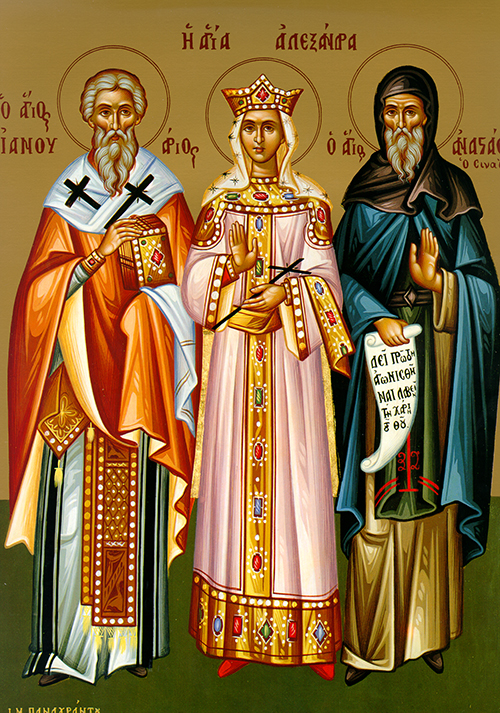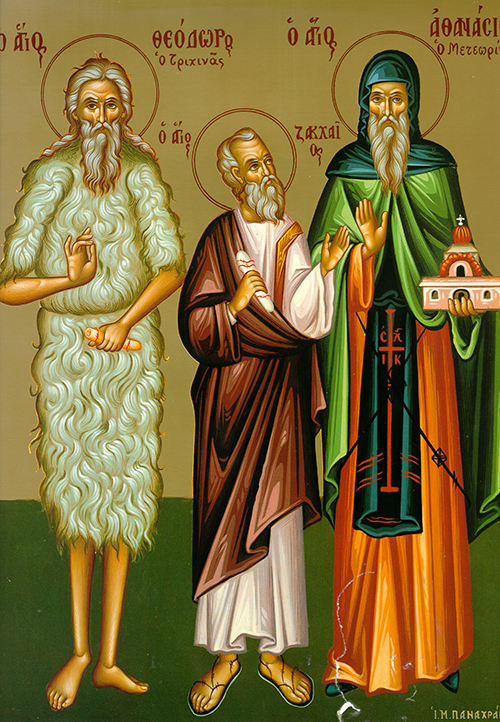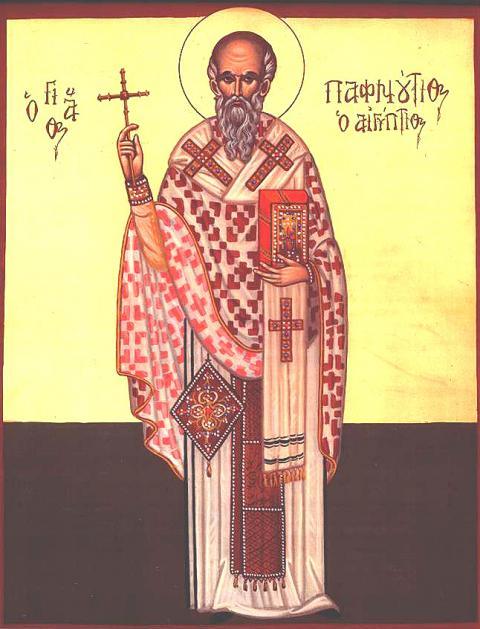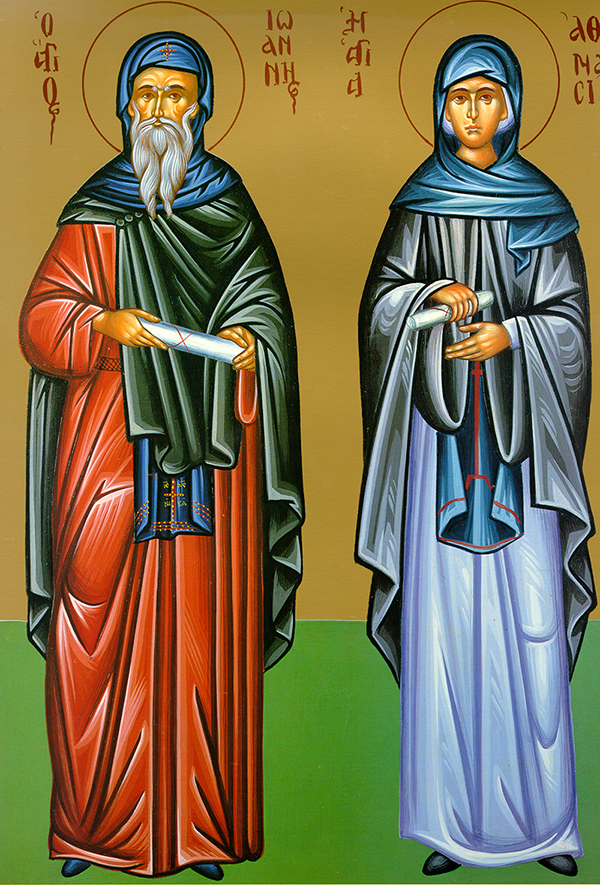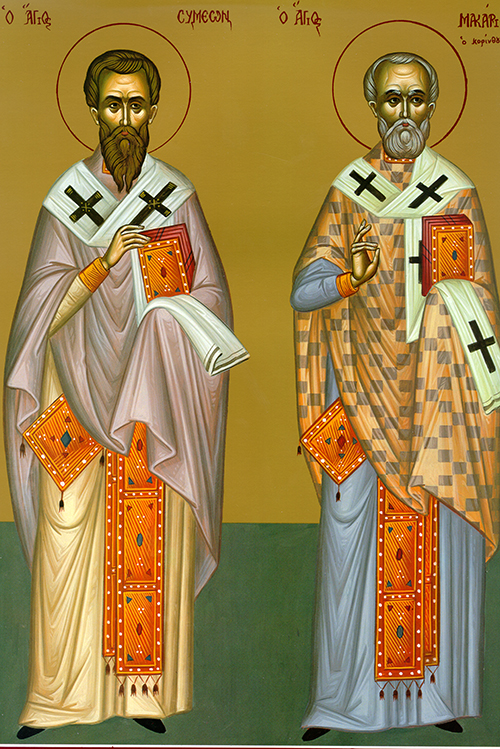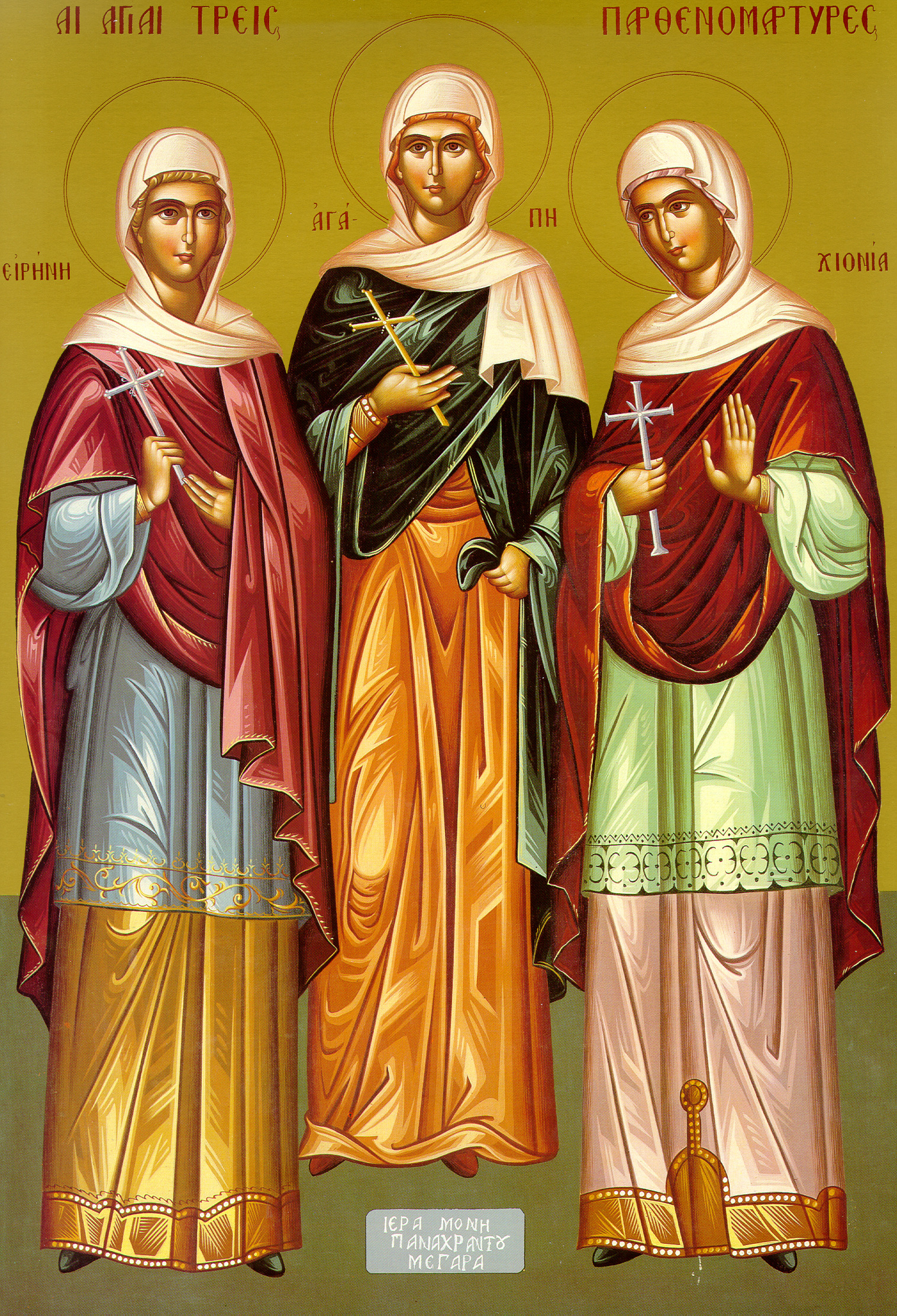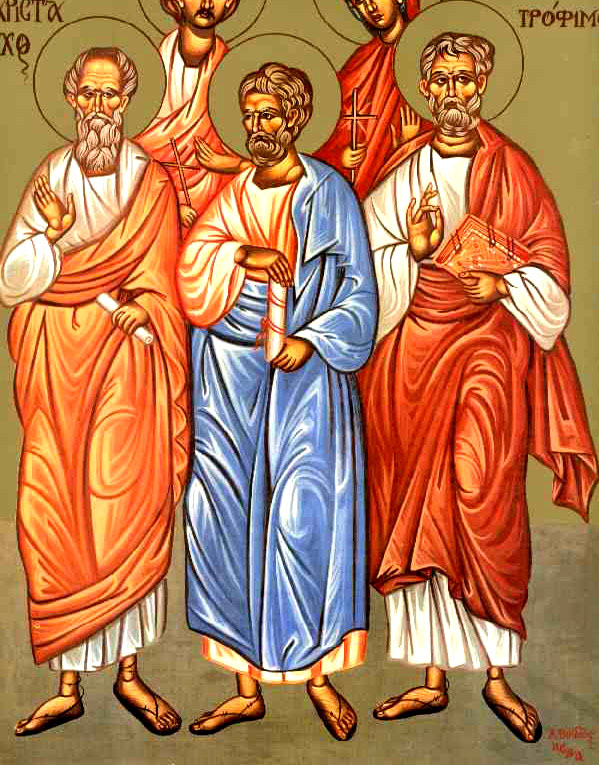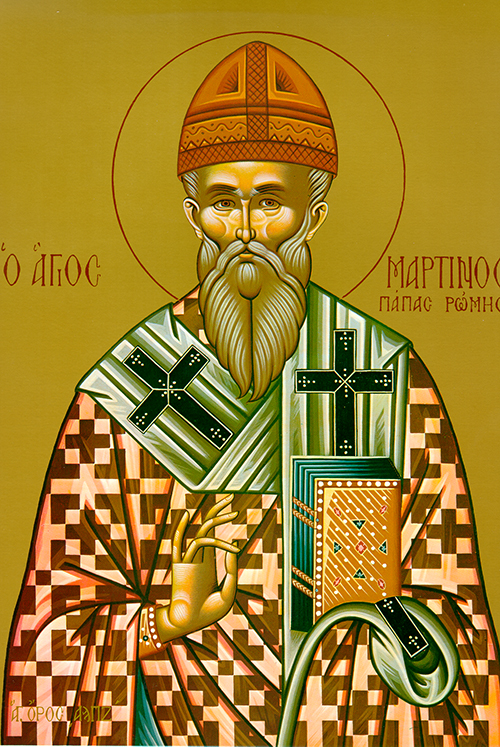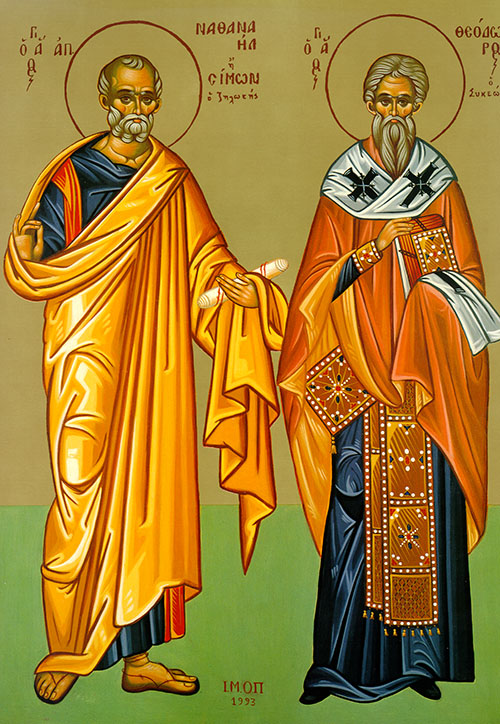

Our venerable father Theodore the Sykeote was born in the mid-sixth century in the village of Sykeon, not far from the city of Anastasiopolis. When his mother, Maria, conceived the saint, she had a vision of a bright star overshadowing her womb. A clairvoyant elder, whom she consulted, explained that this was the grace of God being poured forth on the baby in her womb. When the boy reached the age of six, his mother presented him with a golden belt, since she intended that her son should become a soldier. That night the Holy Martyr George appeared to her in a dream, and he told her not to consider military service for her son because the boy was destined to serve God. When he was older, St. Theodore went to venerate the holy places in Jerusalem, and there at the Chozeba Lavra near Jordan, he received monastic tonsure. As bishop, St. Theodore toiled much for the welfare of the Church, but his soul yearned for solitary communion with God. After several years he went again to venerate the holy places in Jerusalem. And there, concealing his identity, he settled at the Lavra of Saint Sava, where he lived in solitude from the Nativity of Christ until Pascha. St. Theodore departed for the Lord in the year 610.
Troparion
Having followed the path of the holy from your youth, you became a vessel full of graces. You graced the world with miracles, O priestly Theodore, and you cast out many devils. Now pray to the Lord for all of us.
Kontakion
Ascending by virtue as if in a chariot of fire, you took up your abode in heaven, O God-bearer. You lived on earth like an angel in the flesh, and now you sing praises with angels in heaven. You became a heavenly fount of miracles, O Theodore.
Epistle
Acts 10: 1-16
In those days, in Caesarea there was a centurion named Cornelius, of the Roman cohort Italica, who was religious and God-fearing. The same was true of his whole household. He was in the habit of giving generously to the people and he constantly prayed to God. One afternoon at about three he had a vision in which he clearly saw a messenger of God coming toward him and calling, “Cornelius!” He stared at the sight and said in fear, “What is it, sir?” The answer came: “Your prayers and your generosity have risen in God’s sight, and because of them he has remembered you. Send some men to Joppa and summon a certain Simon, known as Peter. He is a guest of Simon the leather-tanner whose house stands by the sea.” When the messenger who spoke these words had disappeared, he called two servants and a devout soldier from among those whom he could trust. He explained everything to them and dispatched them to Joppa.
About noontime the next day, as the men were traveling along and approaching the city, Peter went up to the roof terrace to pray. He became hungry and asked for some food, and while it was being prepared he fell into a trance. He saw the sky open and an object come down that looked like a big canvas. It was lowered to the ground by its four corners. Inside it were all the earth’s four-legged creatures and reptiles and birds of the sky. A voice said to him: “Get up, Peter! Slaughter, then eat.” He answered: “Sir it is unthinkable! I have never eaten anything unclean or impure in my life.” The voice was heard a second time: “What God has purified you are not to call unclean.” This happened three times; then the object was snatched up into the sky.
Gospel
John 6: 56-69
The Lord said to the people coming to him: “The man who feeds on my flesh and drinks my blood remains in me, and I in him. Just as the Father who has life sent me and I have life because of the Father, so the man who feeds on me will have life because of me. This is the bread that came down from heaven. Unlike your ancestors who ate and died nonetheless, the man who feeds on this bread shall live forever.”
He said this in a synagogue instruction at Capernum. After hearing his words, many of his disciples remarked, “This sort of talk is hard to ensure! How can anyone take it seriously?” Jesus was fully aware that his disciples were murmuring in protest at what he had said. “Does it shake your faith?” he asked them.
“What, then, if you were to see the Son of Man ascend to where he was before…? It is the spirit that gives life; the flesh is useless. The words I spoke to you are spirit and life. Yet among you there are some who do not believe.” Jesus knew from the start, or course, the ones who refused to believe, and the one who would hand him over.
He went on to say: “This is why I have told you that no one can come to me unless it is granted him by the Father.” From this time on many of his disciples broke away and would not remain in his company any longer. Jesus then said to the Twelve, “Do you want to leave me too?” Simon Peter answered him, “Lord, to whom shall we go? You have the words of eternal life. We have come to believe; we are convinced that you are God’s holy one.”
Icon courtesy of Jack Figel, Eastern Christian Publications – ecpubs.com


